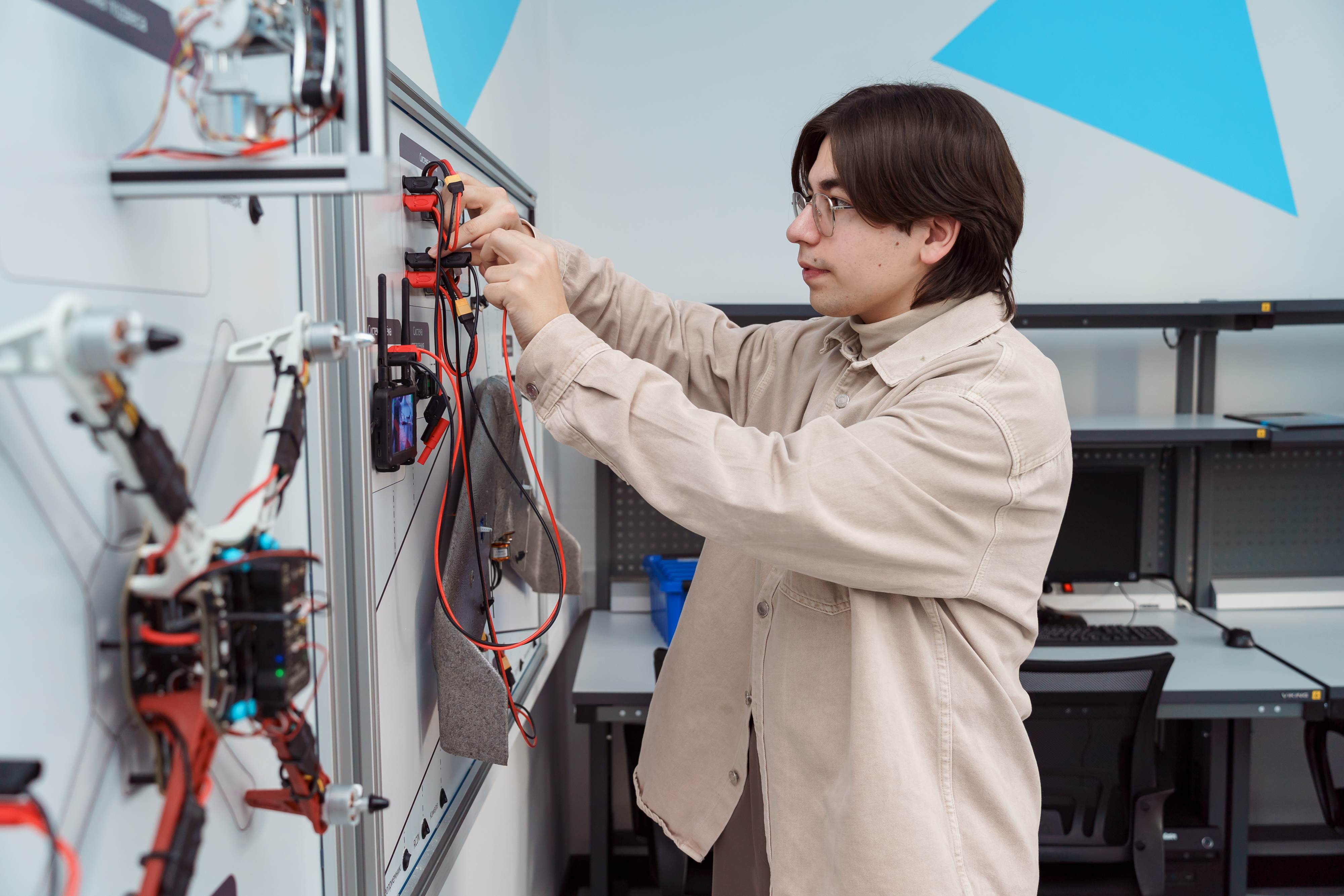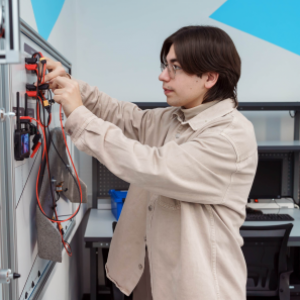Samara University has become one of the pioneers in promoting unmanned aircraft systems (UAS) in Russia. It was among the first ones to join the Federal Association “Aeronext” for developing and operating UAS, and started in 2016 to participate in the formation of roadmaps for the development of this industry in Russia.

Today, several large scientific and educational departments of the University are involved in designing drones, avionics, software programs and payloads. These include the world-class Scientific Centre for Intelligent UAS, established in 2025, the staff of which is engaged in introducing innovative technologies in the field of intelligent design and integrated UAS security.
The University also implements educational programs for higher and additional professional education, is a certified Aviation Training Centre, and, since 2024, has been acting as a provider of the Federal Project “Personnel for UAS” and implements 28 educational programs in 19 regions of the country.
Experts believe that in modern realities, the UAS industry needs for specialized multidisciplinary higher education programs. “The need for specialists in unmanned systems is currently determined in parallel with the development of both the technology itself and the legal regime governing its application. Since UAS has already gained a foothold in the market and obtained value as a kind of “end-to-end” technology, the demand for specialists in this field will increase, and as the shortage of such personnel in the economy increases, the growth will be avalanche-like”, noted Aleksey Arzhanov, Director of Samara University’s Institute of Further Education.
In his opinion, the training in UAS should focus on integrated “end-to-end blocks”: design and production, technical and flight operations. Moreover, for each block it is important to keep track of the current context, if necessary, to specify the preparation for a specific field of application. “The peculiarity of such higher-education programs is their modularity. Due to their modular structure, we are able to quickly create programs on our own or with the involvement of third-party organizations within the framework of network further-education programs for a specific request. Modularity also makes it possible to quickly adjust programs, consider the feedback from students or the training customer, changes in the legal or technological fields”, noted the expert.
Olga Esipova, Head of Samara University’s Employment and Career Office, added that the main difference between short-term programs of additional education and vocational training from basic higher education programs is that they are developed not on the basis of a generalized analysis of competencies demanded by the market, but on the basis of industry orders from enterprises, regional or federal agencies. As a rule, industry partners are involved even at the stage of the program development, during which tasks and a list of necessary competencies are formulated.
Vladimir Bogatyrev, Rector of Samara University
“Today, the UAS industry needs designers and technologists of unmanned vehicles. Therefore, in 2024, we launched the bachelor’s degree program “Unmanned Aerial Vehicles” and plan to train up to 60 students per year in this field. Besides, students of training areas, such as aerospace engineering, propulsion engineering, radio electronics and informatics, have the opportunity for choosing special disciplines or tracks from several disciplines on UAS maintenance and flight operation as their individual educational trajectory.
Moreover, we implement additional education programs for specialists who directly use drones in various applied industries, such as agriculture, forestry, land management, and construction.”
Aleksey Arzhanov, Director of Samara University’s Institute of Further Education
“Specialists in designing and manufacturing UAS, specialists in technical and flight operations of UAS will be in demand in this area. The substantive descriptions of these professions in the medium and long terms can be very diverse. For example, if the practice of using “smart” drones capable of autonomous missions using AI technologies is widely used, flight operation can be transformed into flight planning and flight results processing. The University’s separate area is developing UAS weighing 30 kg or more, the use of which is regulated by separate legislation and can significantly affect modern logistics systems.”
Source: oboz.info
 RU
RU  EN
EN  CN
CN  ES
ES 